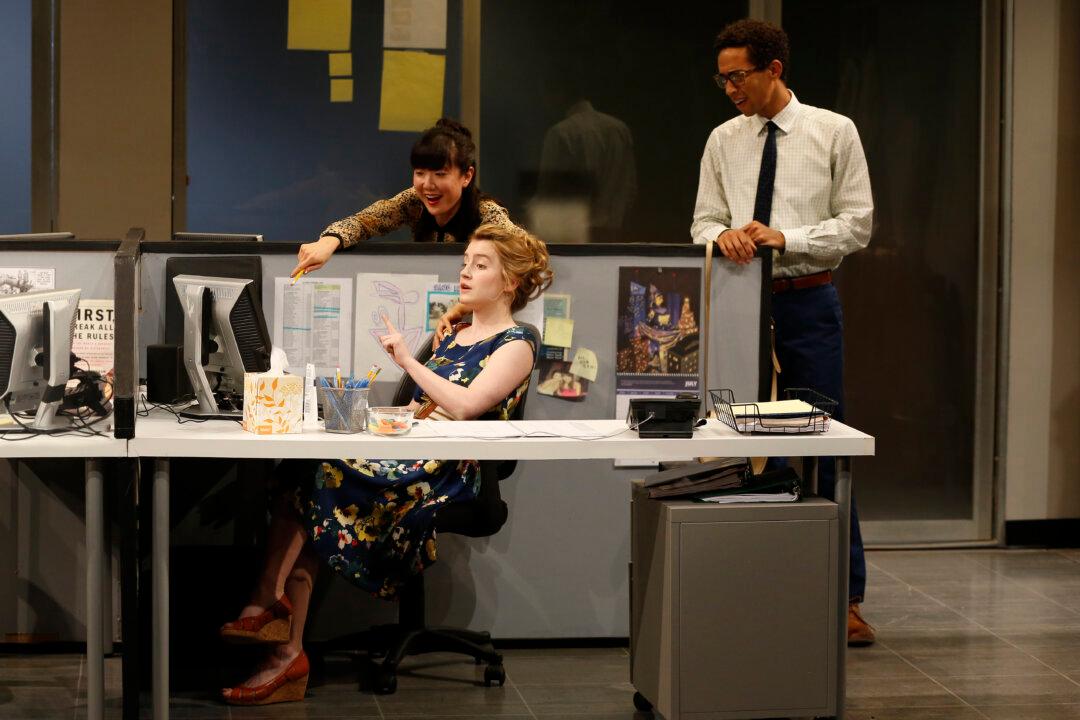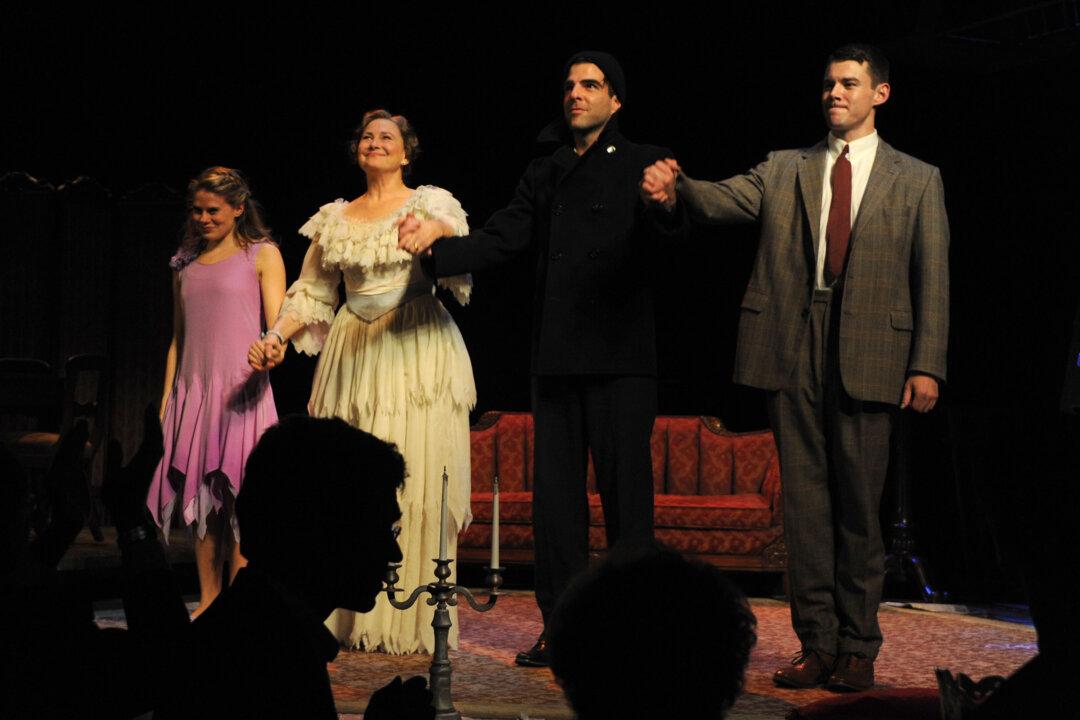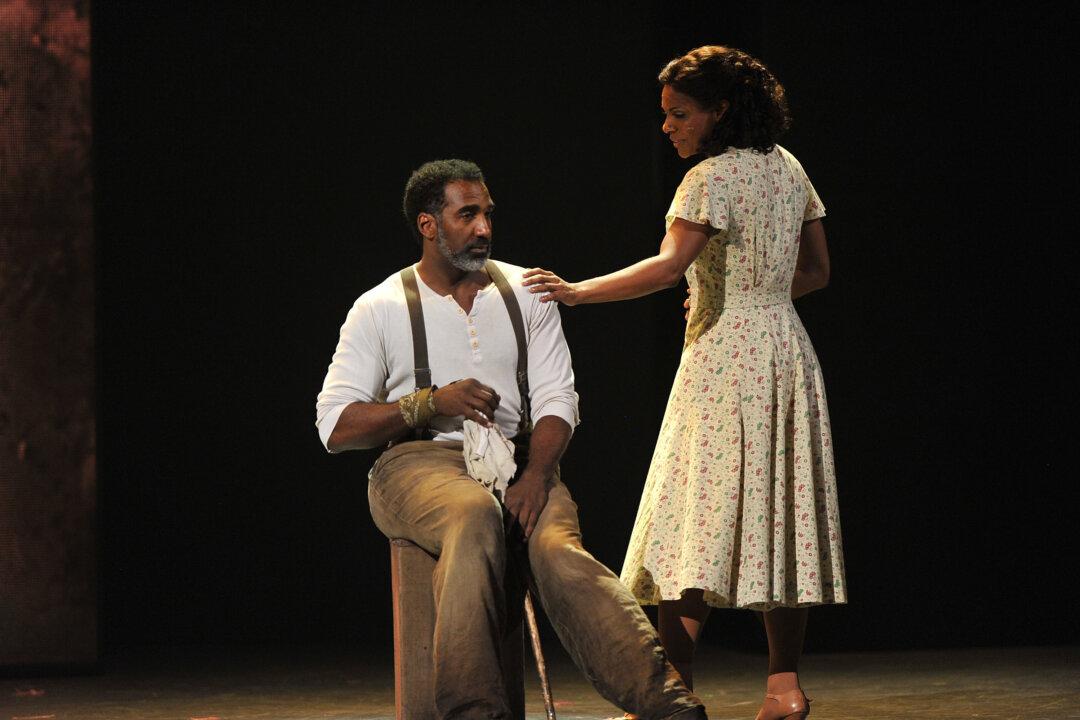“Gloria,” the latest work by the up-and-coming playwright Branden Jacobs-Jenkins, made itself felt on the off-Broadway scene in a gut-punching way. At the center of the play—virtually dead center since it came at the end of Act 1—was a violent, horrific event.
Reviewers sidestepped exactly what this event was so as not to spoil the effect. The Vineyard Theatre’s marketing folks explicitly asked the press NOT to mention the event at the end of Act 1.
Why? To maintain its shock value.
Violence on stage (for the sake of argument, let’s bracket off films) has been around for a very long time. Shakespeare may not have been the first, but he’s likely the most noteworthy dramatist to introduce violence in his works.
As for a recent play, “Bengal Tiger at the Baghdad Zoo” comes to mind. Playwright Rajiv Joseph thankfully allows us to listen to rather than view an event of nearly unspeakable horror—when Uday Hussein tortures an innocent girl to death. Yet, in another scene, we are required to sit through a character sawing at his wrists to commit suicide. It was excruciating to watch.
And “Bengal Tiger” is a very good play. The sensational aspects support the garishness of war and despotic rule.
“Gloria,” too, is a good play and uses the traumatic event to evoke some chilling questions: Are we no longer human enough, no longer empathetic enough, to care about our fellow human beings? Is there nothing that will shake us past our own selfishness?
Toxic Settings
Yet whereas we compartmentalize the horror in “Bengal Tiger”—war is war after all—“Gloria” brings violence into our ordinary world, into a workplace.
What is the consequence of doing so?
Consider Jacobs-Jenkins’s setting: a toxic, dysfunctional office. It is filled with complaining, lazy 20- and 30-somethings suffering from entitlement complexes. They are self-centered, backstabbing, and competitive. This environment reeks and is primarily responsible, it would seem, for the violent event.
After the violence, the characters fight to profit from it. In other words, the incident does not cause any self-examination on the part of the characters; it only darkens and deepens the poisonous atmosphere (albeit no longer confined to the office).
So, consider the consequence to the audience if violence and toxicity are combined. If, metaphorically speaking, the audience is assaulted (that is, through a violent spectacle) in a cesspool (toxic setting), then isn’t an infection likely to develop?
Another Role for Theater
A very old and little heeded theater tradition dictated that violence should occur offstage. The Greeks (and neoclassicists) did not allow violence onstage, only the reporting of it. Oedipus gouged out his eyes offstage.
There was a reason for this reluctance. Theater was considered a means of refining one’s soul, something akin to grinding off our rough edges.
Aristotle, the spokesman of our earliest Western drama, saw enacted drama as a means of purging oneself of excess, unhealthy emotions. First the emotions were stirred up and then released in his famous ideal of catharsis—after a moment of enlightenment on the part of the responsible character.
In effect, wisdom was gained.
Aristotle saw the role of theater as a means to heal. Scholars believe that all of early theater, which was ritual-based, was meant to heal us psychically and spiritually.
Some 2,300 years later, we have forgotten that perspective. Since at least World War II, theater aims to reflect our anxiety back to us.
Different times, different means, we might say. But, consider the effect of living in an anxious world, and then rather than escaping to the solace of our private lives—however anxiety-filled they may be—we take a more potent dose of poison and are also assaulted. Doesn’t it add to our anxiety and intensify it? Is any wisdom gained?
Jacobs-Jenkins has hit on an increasingly sensitive issue for Americans: How can we deal with people so desperately unhappy, so resentful, or so twisted in their worldview that their hatred is vomited unto others?
This topic needs to be discussed, and theater is a particularly powerful vehicle for that discussion. A playwright who tackles such a serious issue should be commended. However, our playwrights need to provoke discussion in a way that doesn’t damage us further.
We rarely examine the effect our art has on us. Perhaps we should. Perhaps our playwrights should.
Sharon Rudorf has a doctorate in theater and taught theater in the Chicago area for years.





